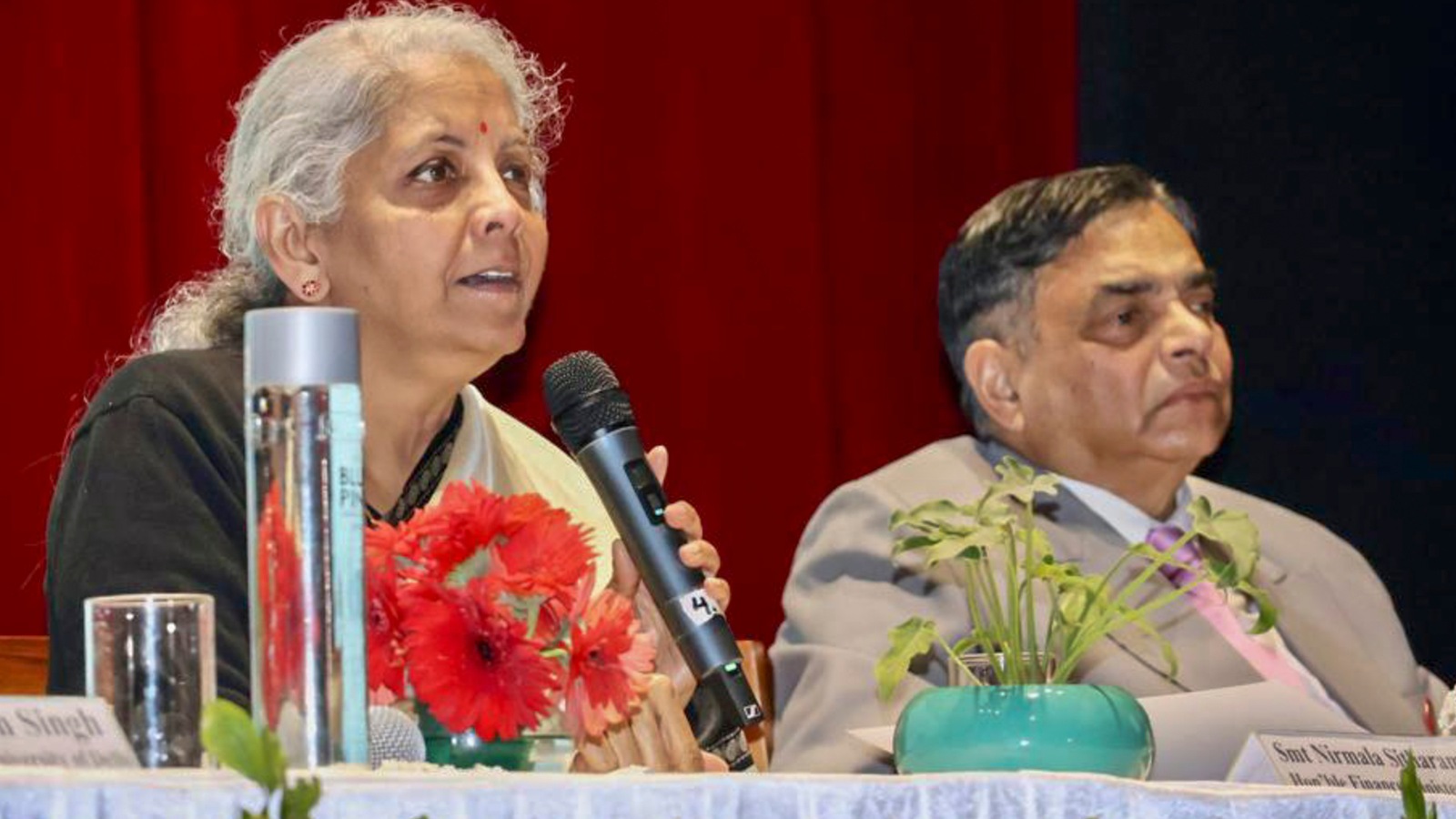Union Budget 2024: Expectations from the TMT sector
The key demand from this sector, as well as from other capital-intensive sectors involved in the export of services, is to expand the scope of provisions under GST to allow for refund of input tax credit paid on capital goods.
 File Image: Finance Minister Nirmala Sitharaman
File Image: Finance Minister Nirmala SitharamanWritten by Madhava Yathigiri
Ahead of the interim Union Budget FY24 to be presented on February 1, these are some of the key expectations in the technology, media and telecom (TMT) sector from a tax perspective.
Refund of input tax credit on capital goods
India’s growing data center industry will be a preferred choice for investment in coming years. The remarkable growth of this industry is also on account of data localisation requirements under various laws. This will entail substantial investments in physical infrastructure. Allowing GST input tax credit paid on various capital goods and credits related to construction of immovable property will help ease costs.
The key demand from this sector, as well as from other capital-intensive sectors involved in the export of services, is to expand the scope of provisions under GST to allow for refund of input tax credit paid on capital goods.
Clarity on online gaming under income-tax
Online e-commerce platforms lure customers by offering promotional schemes, such as ‘spin the wheel’ or ‘scratch card’ on completing a prescribed number of transactions. The intention is to market a product or service and not to get customers to participate in a game with the intention to win. Clarity should be provided through a circular listing activities referred to as “online game” for discharging the burden of withholding tax obligation under Section 194 BA.
Taxability of Inter-connectivity use
Indian telecom operators make payment to foreign operators for availing various telecom services. These payments have been given the colour of payments for using equipment or process and are therefore taxed as in the nature of royalty. Clarity should be brought out in Income-tax Act, 1961, that payment for telecom services is not chargeable to income tax as they do not entail any right-to-use equipment.
Widening of provisions on carry forward of losses
Benefit of carry forward of losses and unabsorbed depreciation is not available in case of amalgamation of companies not owning an “industrial undertaking”. The term “industrial undertaking” is defined as any undertaking engaged in the manufacturing or processing of goods, manufacturing of computer software, the business of generation or distribution of electricity or any other form of energy, the business of providing telecommunication services, whether basic or cellular, including radio paging, domestic satellite service, network of trunking, broadband network and internet services, mining or the construction of ships, aircraft, and railway systems.
Consolidating the entities within an industry helps in rapid growth and generation of substantial employment opportunities. This will in turn help make India a competitive country for foreign investment. To promote such consolidation, the benefit under Section 72A, to carry forward loss and depreciation on amalgamation, should be extended to include other capital-intensive sectors including media/ broadcasting and entertainment, telecom infrastructure service providers and direct-to-home operators.
Royalty payments for use of technological capabilities
The manufacturing segment has seen big success, especially in the areas where PLI incentives have been announced by the government, such as mobile manufacturing, IT products, semiconductors, etc. Indian companies engaged in manufacturing and distribution business of foreign technology products or services, generally pay royalty to the owner of the propriety technologies for use of such technological capabilities or know-how.
Such technological capabilities and know-how are essential for conducting business in India. As part of the arrangements, often, the technology proprietor is issued equity or other forms of remuneration by the Indian company, as consideration for receiving the technology. Guidance should be issued to field officers on mechanisms to review such transactions to avoid unwanted disputes and ease the doing of business in India for such companies. These measures would further bolster investor sentiment.
Some exemptions on GST TCS obligations for e-commerce operators
E-commerce operators are required to collect GST TCS at 1% of the net value of taxable supplies made through it by other suppliers where the consideration on such supplies is to be collected by the operator. Given this, essentially, even when there is no GST liability payable on goods being exported, the e-commerce operators are still required to collect GST TCS. The supplier is required to subsequently claim cash refund of such GST TCS collected by the e-commerce operator.
This results in cash flow issues for exporters as well as increase in compliances for both, e-commerce operators as well as suppliers engaged in exports. The government should bring suitable amendments to exempt GST TCS obligations on e-commerce operators on facilitation of zero-rated supplies, to help with the cash flow issue for exporters and facilitate the ease of compliances.
In essence, the TMT sector’s pre-budget expectations from a tax perspective revolve around unlocking working capital, ease of compliances, tax measures to attract further investment, providing clarity on transactions that would get covered under the withholding tax net with the larger objective of easing doing business in India. With the TMT sector gaining momentum, India is positioned as a global technology hub, with substantial investments in futuristic areas such as the metaverse, 5G, and hybrid multi-cloud systems. Tax relief provided in the sector will indicate a growing landscape and make India an attractive investment destination.
The author is partner, TMT-Tax Leader, Deloitte India.
- 01
- 02
- 03
- 04
- 05































